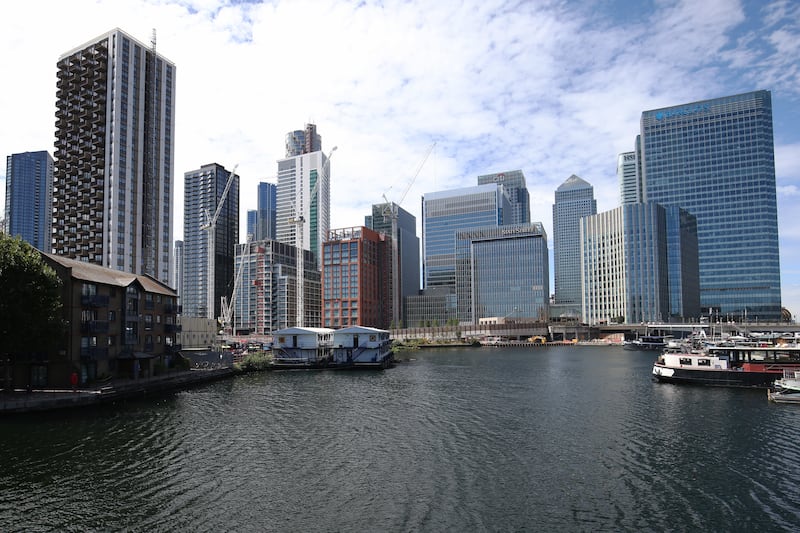OUTPUT in the north’s private sector remained in a state of downturn throughout the third quarter of 2023, Ulster Bank’s monthly business survey suggests.
Published on Monday, the lender's latest purchasing managers’ index (PMI) said output and new orders fell again during September, with private sector output falling for the third month running.
Based on the experiences of 200 businesses across the north’s construction, manufacturing, retail and services sectors, the survey is considered a reliable bellwether for the state of the north’s economy.
September's PMI showed all four sectors in decline, which construction the worst performer.
Northern Ireland’s official measure of growth, the Composite Economic Index, last month revealed a slowdown in the private sector resulted in economic output contracting by 0.5 per cent between the first and second quarters of 2023.
If the third quarter index matches the data captured in Ulster Bank’s surveys over the past three months, then the north may already have met the criteria for a technical recession, i.e. two successive quarters of declining output.
Northern Ireland last entered a technical recession last year, when the Composite Economic Index reported a contraction in both the second and third quarters of 2022.
The official data for the third quarter isn’t due to be released until January 2024.
Ulster Bank’s chief economist, Richard Ramsey, said: "Northern Ireland’s economic malaise during the summer months continued into the autumn with a further loss of momentum in the local private sector during September.”
While that trend was replicated in PMIs across the UK regions, Northern Ireland was near the bottom of the table.
“It is a similar story with new orders, which contracted for the fourth month in succession,” said the economist.
“In September, all four sectors reported a decline but the pace of contraction was most significant within construction which posted its biggest monthly decline in orders this year.
“Despite the recent fall in customer demand, manufacturers, retailers and firms within the services sector remain more optimistic about prospects in 12 months’ time. Conversely, construction firms are expecting demand conditions to deteriorate further over the year.”
On a more positive note, weaker demand appeared to cut supply chain delivery times, which have eased for the sixth successive month.
And while private sector activity may be in decline, the Ulster Bank PMI found employers still increasing employment last month.
Richard Ramsey said Northern Ireland firms continued to increase their staffing levels at the fastest pace in the UK during September.
However, he noted that the pace of hiring is now the slowest it has been this year, with the services sector recording a reduction in staffing levels in September at the fastest rate since February 2021.
Official data published over the summer months reflected a weakening in the north’s labour market.

The PMI also showed rates of inflation easing for businesses, reflecting the official government data.
But prices are still rising.
“Higher fuel and wage costs were once again cited by local firms,” said Mr Ramsey.
“Manufacturing was the only sector to reduce its prices in September - for the fourth month running - reflecting a continuing reduction in its cost-base.
“While we may be anticipating an Indian summer in the coming weeks weather-wise, a similar improvement in business conditions during October doesn’t look likely,” he said.
“Similarly on the political front, there is no immediate sign of a return of the Stormont Executive."
The political stalemate over the Windsor Framework and the restoration of the executive could be factor in levels of optimism within the north’s private sector being weaker than the UK average.
Albeit, sentiment did appear to improve slightly last month.








